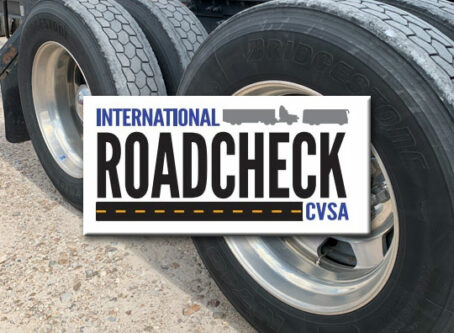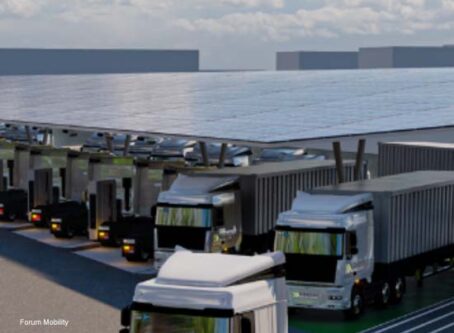Speed, red-light camera rule revisions approved, pursued in nine states
State lawmakers around the nation have acted and continue to pursue rule revisions for speed and red-light ticket cameras.
The use of speed cameras to nab drivers who disobey traffic rules is employed in more than 220 communities across the nation, the Insurance Institute of Highway Safety reports. There are about 340 communities that employ red-light cameras.
Officials with the Owner-Operator Independent Drivers Association argue the focus on the revenue-generating devices ignores the more logical and reasoned approach to roads and traffic: Keep traffic moving in as safe a manner as possible.
California
Multiple California bills address use of speed-enforcement cameras.
In 2023, Gov. Gavin Newsom signed into law a bill permitting speed cameras as a tool to enforce posted speeds.
California law allows for the use of red-light cameras. The ticketing tool is used in more than 30 areas around the state. Speed cameras, however, are prohibited.
The year-old rule authorizes a five-year pilot program to utilize speed cameras in areas described as “safety corridors.” Areas covered include those with a high number of crashes, those where street racing events are common and those in school zones.
Freeways and expressways are excluded.
The cities of Glendale, Los Angeles, Long Beach, Oakland and San Jose, as well as the city and county of San Francisco, are authorized to post the cameras.
The locales are permitted to operate up to 125 cameras. The number of cameras authorized is based on population.
The National Motorists Association opposed the pursuit. The group told lawmakers the need for enforcement of speed limits does not warrant creating a new mechanism for government collection of large amounts of data on Californians.
Senate Bill 1297
One Senate bill introduced early this year would add the city of Malibu to the list of locales permitted to post speed cameras. SB1297 would permit the devices to be posted along the Pacific Coast Highway in the city.
A bill memo explained that over the past 15 years, 59 people were killed in wrecks on the affected stretch of roadway. Speed was provided as the primary factor in each incident.
The Senate Transportation Committee voted last month to advance SB1297 to the Senate Appropriations Committee. An April 22 hearing on the bill was postponed.
Assembly Bill 2809
A separate bill would add authorization for speed cameras in highway work zones throughout the state.
AB2809 is in the Assembly Transportation Committee.
Iowa
In Iowa, a bill has advanced to the governor’s desk that would put limits on the use of speed-ticket cameras.
Statute does not prohibit nor allow the use of speed and red-light cameras. However, the state’s Legislative Services Agency reports there are at least 24 cities and towns that operate automated or remote systems for traffic law enforcement.
HF2681 would require local governments to obtain a permit from the Iowa Department of Transportation to use speed-ticketing devices. Tickets could be issued for exceeding the posted speed limit by more than 10 mph.
Local governments with populations below 20,001 would be forbidden from using mobile ticket cameras that change locations. Affected communities could still issue warnings.
Cities and towns already using ticket cameras would be required to submit justification for their cameras to the state DOT. The agency would have until Oct. 1 to decide whether the camera programs are justified.
Another bill provision would mandate that ticket revenue must be used for transportation infrastructure improvements or for local law enforcement or fire departments.
Louisiana
Eight Louisiana locales that include Shreveport and New Orleans use speed cameras, according to the Insurance Institute for Highway Safety. Red-light cameras are posted in the cities of Baton Rouge and New Orleans.
Minimum fines are set at $60.
House Bill 652
House lawmakers approved a bill that could derail the use of speed cameras.
HB652 would require speed camera systems to capture an image of the offending driver. Currently, the devices only photograph the speeding vehicle. Systems that do not adhere to the rule would be prohibited from issuing citations.
Rep. Daryl Deshotel, R-Marksville, told the Senate Transportation, Highways and Public Works Committee his legislation is designed to hold speeding drivers – not vehicle owners – accountable.
The bill remains in the Senate committee.
Senate Bill 379
One Senate bill nearing statehouse passage would nix a two-year-old law that authorizes the use of speed enforcement cameras along the Atchafalaya Basin Bridge.
Motorists are permitted to travel up to 60 mph along the Interstate 10 span in south Louisiana. Truck drivers are permitted to travel up to 55 mph along the span connecting Lafayette and Baton Rouge. Additionally, trucks are limited to use the left lane only for passing.
In 2022, then-Gov. John Bel Edwards signed into law a bill authorizing the use of enforcement cameras to track vehicle travel times.
The Louisiana Department of Transportation and Development this spring started posting speed cameras on the 18-mile span. The project has a June completion date.
SB379 would repeal camera authorization. The bill also would eliminate double fines for speeding.
Sen. Blake Miguez, R-New Iberia, told a Senate committee the bill would “repeal the revenue-generating speed cameras” on the bridge. Instead, he wants to rely on local law enforcement to patrol the roadway.
The bill has advanced to the House floor. If approved there, it would move to the governor’s desk. Senate lawmakers already approved the bill by unanimous consent.
Thank you to my Senate colleagues for their unanimous support of #SB379 which prioritizes safety and police presence over revenue generation from speed cameras. Real safety involves human judgment, not automated penalties in the mail weeks later. #lalege #lagov https://t.co/TRa4IgV4cj
— Blake Miguez (@BlakeMiguezLA) April 10, 2024
Senate Bill 21
A Senate bill would eliminate authorization of red-light and speed-ticket cameras statewide.
SB21 is in the Senate Transportation, Highways and Public Works Committee.
Maryland
Maryland Gov. Wes Moore has signed into law a bill to increase the deterrent to speeding in work zones.
State law limits use of speed cameras to state highway work zones and school zones. A police officer is required to be present to man a camera.
Violators face $40 fines, with a portion of the revenue routed to the camera provider. No points are added to offenders’ licenses, and insurance companies are not notified.
The Maryland Department of Transportation reported that in fiscal year 2023, there were 335,888 camera citations issued for work-zone speeding. Fine amounts totaled about $9.7 million.
In an effort to boost the speeding deterrent, the new law doubles the fine for work-zone speeding captured on camera from $40 to $80. Starting Jan. 1, 2025, the fine amount will increase to $250.
The requirement that an officer be present to issue an automated citation has been removed.
More than one camera is permitted in each work zone. Only one citation can be issued per vehicle for a speeding violation.
Additionally, a local government authority is permitted to use work-zone speed cameras on roadways that are not an expressway or controlled access highway.
Michigan
In Michigan, legislation would bring speed-ticket cameras to the state.
Currently, there are no communities in the state that use red-light cameras or speed cameras. Michigan law requires law enforcement to witness violations.
A two-bill package awaiting Senate floor consideration would authorize automated speed enforcement in work zones.
The legislation would permit speed-ticket cameras to enforce vehicle speeds in work zones on a highway or street. Specifically, HB4132 and HB4133 would give the Michigan State Police and the Michigan DOT permission to utilize automated enforcement at sites that do not have guard rails or other barriers.
Ticket cameras would be authorized for use in affected areas when construction workers are present. Owners of vehicles found traveling at least 10 mph above the posted speed limit would receive violation notices in the mail.
First-time offenders would receive a written warning in the mail. Repeat offenders with violations within three years would face fines up to $150. Subsequent offenses within the same timeframe would result in fines up to $300.
A work-zone safety fund also would be created, with the state Treasury coordinating with state police and local law enforcement to increase police presence within work zones, to fund devices and to make other safety enhancements.
If approved by the full Senate, HB4132 and HB4133 would head back to the House for approval of Senate changes before they can move to the governor.
New Jersey
A New Jersey Senate bill is intended to limit the effect of red-light and speed cameras.
The Garden State does not authorize the use of ticket cameras. Other states in the Northeast, however, do utilize automated enforcement methods.
Sen. Declan O’Scanlon, R-Monmouth, is behind a bill to prohibit the state’s Motor Vehicle Commission from providing identifying information for New Jersey licensed drivers to camera enforcement entities in other states.
Titled the “Camera Enforcement Inoculation Act,” S3067 is modeled after a South Dakota law that prohibits the state from sharing information with other states for the collection of civil fines that result from camera tickets.
O’Scanlon has referred to automated enforcement as “government sanctioned theft” with “zero safety benefit.”
Ohio
Legislation in Ohio would put new rules on speed-camera-operating companies.
HB416 would require cameras to be registered with the state. A $100,000 license fee would be charged annually to companies.
Advocates contend the requirement would help travelers know where the devices are located.
Another provision would make the Ohio Department of Public Safety responsible for inspecting each camera monthly to confirm accuracy. Camera companies would be charged $5,000 monthly per device for the service.
Ticket revenue distribution would remain the same. Local municipalities would continue to collect 60%, and companies would get the rest.
An 8% state tax would be added to a company’s revenue.
The bill is in the House Homeland Security Committee.
Vermont
A Vermont bill headed to the governor covers the use of speed cameras in work zones.
S184 would permit ticket cameras on limited-access highways that include Interstates 89 and 91.
State and local officials would be permitted to employ the technology to enforce speed limits.
Violations would be registered for speeds more than 10 mph above the posted limit.
A first violation would result in a warning. Repeat offenses within one year would result in an $80 fine. Subsequent violations within the same time period would result in $160 fines.
Cameras would be used only while crews are active in a work zone.
Washington
A new law in Washington state covers the use of automated enforcement cameras.
Currently, speed cameras are permitted by Washington state law and by city ordinance. Locations are limited to school zones, public parks and hospital zones. Other locations of concern also can also be outfitted with the cameras.
A 2023 law expanded the use of speed-ticket cameras to highway work zones. Citations can be issued only when workers are present. The new rule takes effect in July.
Previously HB2384, the new law authorizes more cities and counties to place speed cameras on city streets and in work zones. The city of Seattle’s use of cameras to detect restricted-lane violations is also made permanent.
Additionally, any trained or authorized “civilian employee” is authorized to review video to determine when an automated safety camera violation occurred. The authority to review potential violations previously has been limited to sworn police officers.
The new law takes effect June 6. LL









